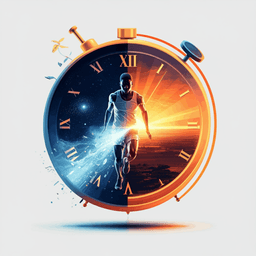
Health and Fitness
Sports Performance and Breathing Rate: What Is the Connection? A Narrative Review on Breathing Strategies
G. M. Migliaccio, L. Russo, et al.
This narrative review, conducted by Gian Mario Migliaccio, Luca Russo, Mike Maric, and Johnny Padulo, integrates physiological and psychological effects of breathing pace in sports. It contrasts slow voluntary breathing (VSB) — which may improve cardiovascular fitness, reduce stress, and sharpen focus — with fast voluntary breathing (VFB), which can trigger anxiety and dizziness, highlighting unclear but promising links to performance.
Related Publications
Explore these studies to deepen your understanding of the subject.







